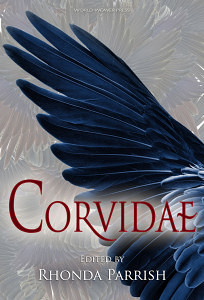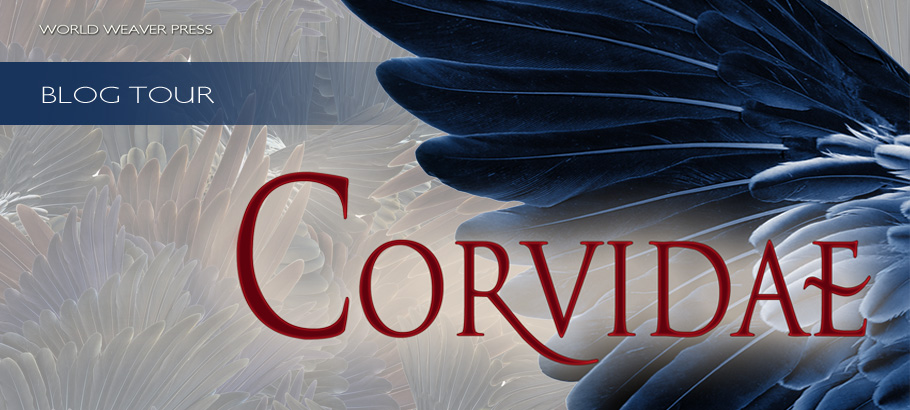Over the coming weeks I’d like to share interviews that I (and Magnus) conducted with the contributors to Corvidae and Scarecrow. This week we’ll talk with Mark Rapacz whose story, Bazyli Conjures a Blackbird which Magnus described as, “A brand new Russian fairytale! Like a stolen chapter out of War and Peace!”. Having not read War and Peace I could be wrong, but I’m going to go out on a limb and say that Mark’s story is much more magical 🙂
Interview with Mark Rapacz
Please share a short excerpt from your story/stories:
So some of the soldiers thought he’d make himself disappear on one side of the stage and reappear on the other. Some thought he would shoot lightning straight out of his hands. Others just assumed he would fly. Still, some said they knew for certain that he would raise the dead. One dead soldier every night and for this reason we would never lose the war. Some said he could read the mind of God! Others said the Devil! Others said the generals of our enemy and for this we would never lose the war! They were always thinking of reasons why we would never lose the war. Me? I already knew we had lost. They said these things because these were the tricks they had seen before. These were what they expected to see. What they wanted to see. Most people don’t want to see what they haven’t seen before. This is what makes war so bad. You see many things you haven’t seen before and it’s best that you never see them again, but you do, you do. In here. And in here. But not here, Kuba. Not in your stomach. Your stomach stays free and hungry and only loves your Babushka’s cooking.
What is it about corvids that inspired you to write about them? Corvids have shown up in my work now and again. They show up in a lot of writer’s work, actually. Symbolism of death or something. Writers seem to like that. I do, of course. I’m not even sure where the symbolism comes from. Perhaps Norse mythology of Huginn and Muninn, but I feel like no matter one’s cultural background folks are drawn to these birds. They show up so often, too. It might be their scavenger nature and we draw the connection that with these birds comes some kind of end. I don’t know really. If I catch a gander of them on some electrical wires or in the trees, I always pay attention to them. Who doesn’t? They appear and you hear them caw and you just sort of scratch your head wondering why they decided to flock to your doorstep and you feel each individual one as they just set there cackling among themselves. They always leave you with this unsettling feeling, but once they fly away, you always wish they would come back.
Was there one corvid characteristic you wanted to highlight more than others? Definitely their furtive movement. It’s hard to capture how a bird moves in writing. It’s so odd and unpredictable. Nothing quite like it. They’re so visual, so when you do what you can with the blunt tools of letter on page, you’re always left a little unsatisfied. Probably why they return in my stories again and again. There to remind me I’m never getting them quite right.
Do you think you were successful? Eh. I think my corvid ended up monstrous because the movement of a monster is easier to capture than that of a bird … or anything real for that matter. Monsters live better on the page. Corvids live better everywhere else.
If you were a covid, what would you build your nest out of? The very last twig in existence. Then I’d take a rest.
What’s your favourite ‘shiny’ thing? Hollywood.
Mark Rapacz’s stories have appeared in a number of publications, including Plots With Guns, Revolver, Dark Corners, The Booked. Anthology, and The Best American Nonrequired Reading 2012. His novel City Kaiju was just released in 2014, while his second novel, Foreigners, is forthcoming from New Pulp Press in 2015. He and his wife currently live in the Bay Area where he continues to write stories.

Available Direct from the Publisher:
World Weaver Press
Or Find it Online:
Amazon
Goodreads
Kobo

